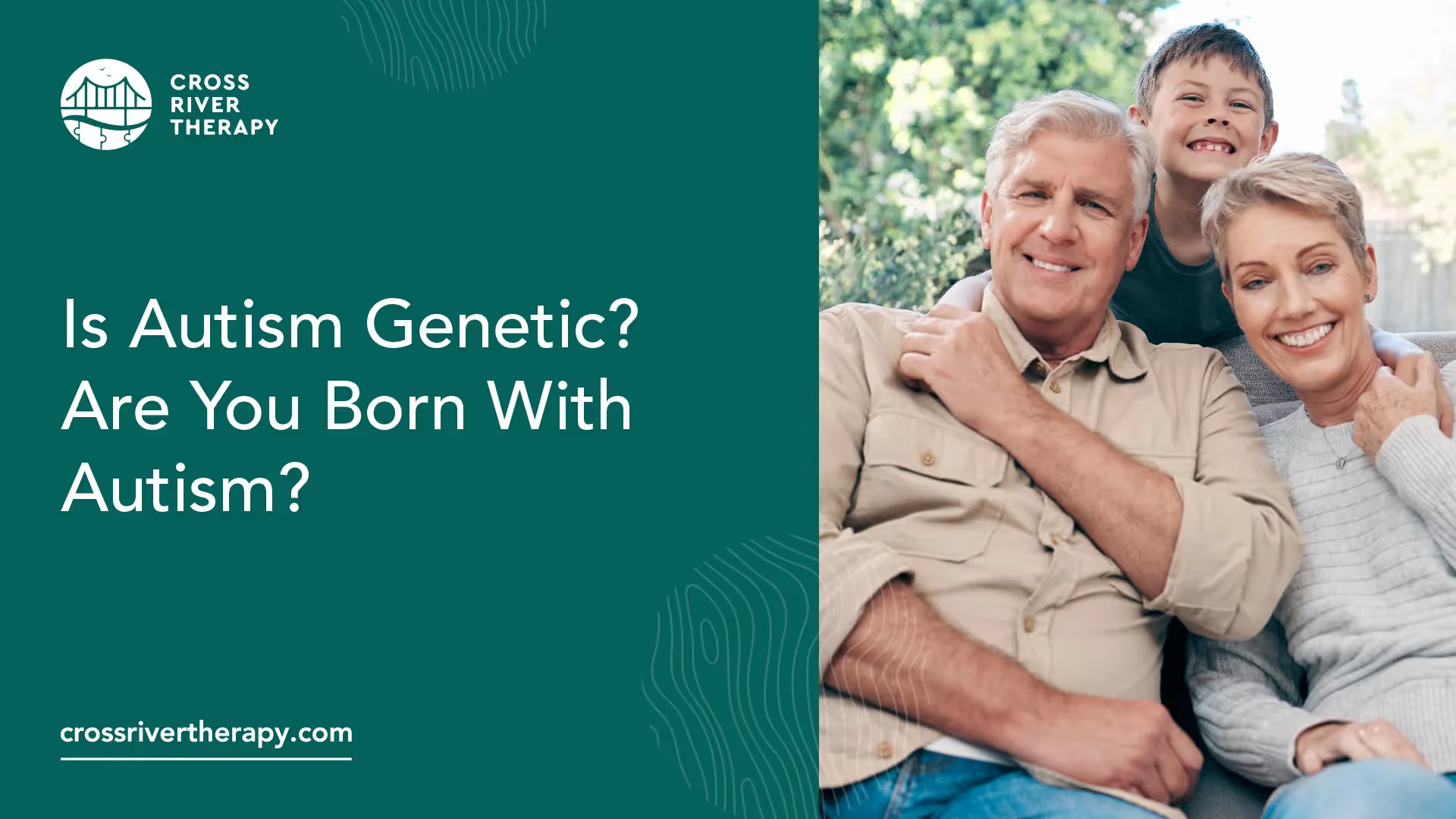Is Autism Genetic? Are You Born With Autism?
Find out if autism is genetic, if you’re born with it, or if it’s environmental.
Is Autism Genetic or Environmental?
There's no concrete conclusion on autism being genetic or environmental. However, genetics, bioology, and environment are all important factors. Having older parents, infections, or a difficult birth are examples of factors that could increase the risk for being born with autism.

Genes can be thought of as a menu for the human body.
The information that's stored in every cell determines how people's appearances are, how tall individuals grow, and even the size of their feet.
These bits of information are influenced and altered by activity that occurs on the outside.
Because genetics is so complicated, it's hard to claim simply if autism is genetic or not.
There are too many factors at work to give a straightforward answer with little nuance. Recently, many crucial studies have been completed that are related to autism.
Some of them insinuate that autism might be genetic, at least ostensibly.
Other research pinpoints the amount of information that's left unanswered, especially regarding the role that genes have in ASD.
Is Autism Genetic From Mother or Father?
Surprisingly, research suggests that the rarer variants associated with autism are mostly inherited from the father.
Genes are carried from a child's parents to their children, which continues with their children once they're older. At times children have the same problems and traits that their parents have.
It's fairly common for brothers and sisters to share genetic traits.
Research conducted with different families shows much about the role of genetics in autism and its symptoms.
Throughout the years, it's been known that ASD is hereditary, passing from parents to their children. An early study showcasing identical twins was proof of this.
The people conducting the study were confident that when ASD symptoms were present in one twin, there would be a high probability of the other twin having the same disorder. As for fraternal twins, there's a 40% chance of this.
Through extensive research, it's proven that children with ASD have alternative conditions that are based on genetics. These include the following:
- Angelman syndrome
- CHARGE syndrome
- Down syndrome
- 22q deletion syndrome
- Cornelia de Lange syndrome
- Fragile X syndrome
- Duchenne muscular dystrophy, also known as DMD
- Rett syndrome
- Prader-Willi syndrome, or PWS
- Smith-Magenis syndrome, or SMS
- Smith-Lenmil-Opitz syndrome, or SLOS
- Tuberous sclerosis
- Sotos syndrome
Approximately 20% of kids with autism have one of the symptoms listed above, according to experts. Many of the conditions manifest themselves with unfounded portions of DNA or other imperfections in one's genetic code.
What Causes Autism Chromosomes?
Autism chromosomes are caused by the transfer of genes during development in the womb.
Clinical therapists often screen the chromosomes of children that are in development.
This helps to find if any abnormalities are present. Things like prenatal tests that are genetic for handling some of the symptoms of autism.
Some include fragile x syndrome. However, if a baby that's still in development has such mutations, there's no surefire way to know if they'll later receive an autism diagnosis in the future.
Additional Research Needed
Understanding the number of genes that can cause autism is difficult but necessary. Psychologists and therapists alike promote the uncertainty surrounding ASD and how it manifests.
Some researchers claim genes indicate how different cells function, and that they can specify the impacts they have on causing damage and disease.
Risks that aren't genetic can also exist such as mitochondria. Mitochondria are small formations that give power to different cells. Some of them contain their genetic code. Anyone with autism can have the atypical function of their mitochondria. This can lead to a whole host of issues that in turn cause symptoms common in the autistic.
Another is developmental susceptibility. The environment and genes that inhabit it are interconnected in all people.
A person with a particular listening of genes could move to a satisfactory prompt for an official diagnosis of autism. Yet, on the other hand, someone that doesn't experience such a trigger might not have any issues.
The third is the environment. Characteristics like a mother getting pregnant with twins, deficiencies in folate, and other contributors can boost the chances of autism being present.
All of the factors listed can precede the role that genes play in a baby developing autism.
At the same time, they can serve as a contributing part of a larger set of circumstances that lead to the disorder. There remains much research that must be done to find a better understanding of the root causes.
Still, someone can develop autism symptoms, even if their family has no history of it showing up in other relatives.
Around 30% of incidents happen in this scenario. If the disorder occurs in those who exhibit little to no genetic imperfections, there's little consensus as to how it happens.



